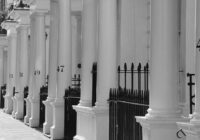The community has stepped in to help the survivors of the Grenfell Tower fire, with the UK government still falling short on its promises.
On June 14, 2017, a blaze broke out at the Grenfell Tower housing complex in London, becoming, according to Mayor Sadiq Khan, Britain’s deadliest residential fire since the Second World War. More than half a year after the tragedy, it is frustrating to see that the government and those directly responsible for the well-being of the survivors have not lived up to their task. It is the community that has come together and stepped up not only in the wake of the tragedy, but continues to do so to this day, when justice has still not been served.
Speaking at the House of Commons a week after the fire, Prime Minister Theresa May admitted that “The support on the ground for families in the initial hours was not good enough. … That was a failure of the state, local and national, to help people when they needed it most.” Frustratingly, it is not only in the initial hours of the tragedy that the support was inadequate. There is still a pressing need for the government to facilitate the rehousing of the survivors.
Seventy one people have been reported dead, and many more are still unaccounted for, due to the difficulty of finding and identifying the remains among the rubble. Yet, despite this incredible emotional toll, many of the families are still without permanent accommodation. Many victims are justifiably angry by the delays as 98 of the 208 Grenfell Tower households still remain in hotels.
The UK government promised a £5 million fund for the victims back in June 2017 amidst protests against its reaction to the tragedy. Yet the empty promises that all victims will be rehoused within three weeks have left many feeling devalued and ignored, and more still are in need of counseling. Ahad Miah, who conducted the funeral of Mohamed al-Haj Ali, the first identified victim of the tragedy who had survived a refugee’s treacherous journey from Syria, said to me: “I told his father to remember his son as a beautiful, handsome young man. He started crying and the emotions are still felt by the whole community. As parents ourselves we expect our children to bury us… not for us to bury our children.”
The community and those working on the ground are affected by the injustice and administration of recovery, which has been extremely slow. Residents who live nearby can still see the ruins of Grenfell from their bedroom windows, and many feel that they cannot gain any sense of closure. (The block is scheduled for demolition at the end of 2018.) Many residents are still waiting for the results of the inquiry by the Metropolitan Police into the breach of fire safety regulations — the cladding used on the block is believed to have been the cause of such vast devastation — as well as corporate manslaughter and misconduct in public office.
The only respite comes from the community volunteers and organizations that have played a pivotal role in rebuilding and rehabilitating the lives of all those affected by this tragedy. The Grenfell Muslim Response Unit has been helping victims from the onset of the tragedy, providing support to the victims where the council fell short, and continues to do so still. Latimer Community Art Therapy has been providing a way for the children and adults in the community to heal “through art and play.”
More absurdly, community volunteer therapists who have been doing the government’s work have been threatened to be evicted by the Royal Borough of Kensington and Chelsea council as it aims to provide professional services. If the council wants to get rid of those volunteers who have stepped in at a time when Grenfell residents needed help most urgently, it must absolutely ensure that the needs of the community are met.
More needs to be done by the government to help the families of Grenfell Tower to rebuild their lives. All the residents in social housing or in private block towers from Ladbroke Grove to Camden need to know that their lives are valued and that they have every right to call for justice, closure and support. The community needs have to be addressed and acted upon not next month, not next week, but today.
The views expressed in this article are the author’s own and do not necessarily reflect Fair Observer’s editorial policy.
Photo Credit: John Gomez / Shutterstock.com
Support Fair Observer
We rely on your support for our independence, diversity and quality.
For more than 10 years, Fair Observer has been free, fair and independent. No billionaire owns us, no advertisers control us. We are a reader-supported nonprofit. Unlike many other publications, we keep our content free for readers regardless of where they live or whether they can afford to pay. We have no paywalls and no ads.
In the post-truth era of fake news, echo chambers and filter bubbles, we publish a plurality of perspectives from around the world. Anyone can publish with us, but everyone goes through a rigorous editorial process. So, you get fact-checked, well-reasoned content instead of noise.
We publish 2,500+ voices from 90+ countries. We also conduct education and training programs
on subjects ranging from digital media and journalism to writing and critical thinking. This
doesn’t come cheap. Servers, editors, trainers and web developers cost
money.
Please consider supporting us on a regular basis as a recurring donor or a
sustaining member.
Will you support FO’s journalism?
We rely on your support for our independence, diversity and quality.







